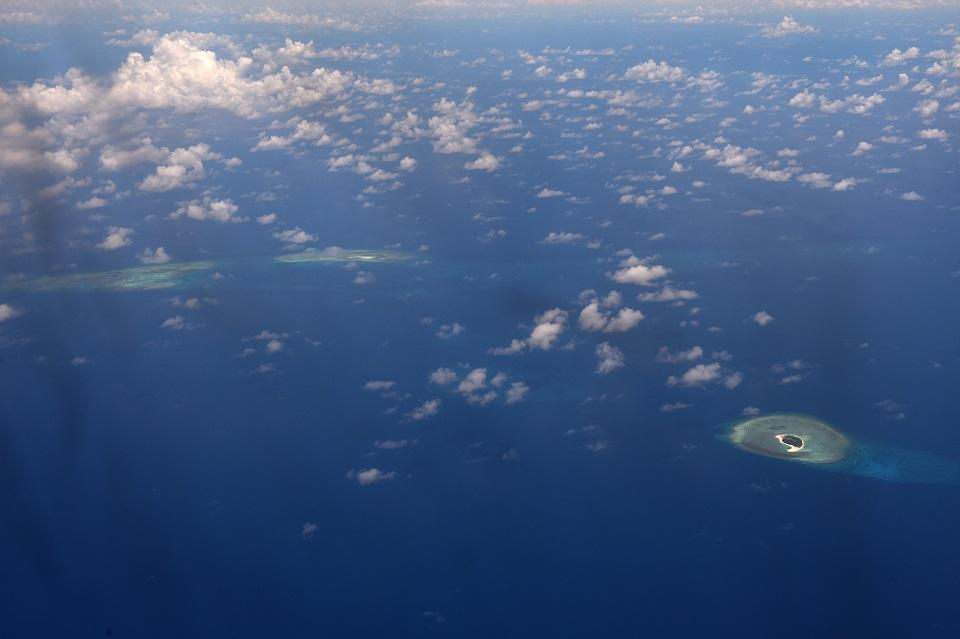Philippines ‘lukewarm’ to joint exercises with China, says NTF-WPS

The Philippines and China have no visiting forces agreement that may cover joint military exercises between the two countries, the National Task Force on the West Philippine Sea said on Tuesday.
Following the Chinese Coast Guard's use of water cannons on a Philippine resupply mission en route to the Ayungin Shoal, NTF-WPS spokesman Jonathan Malaya said the Philippines was "lukewarm" to the prospect of drills alongside the Chinese.
“Because of what happened over the weekend, lukewarm tayo dun but ang pinakaimportante kasi is for us to have a legal basis for the joint maritime exercises,” Malaya told reporters.
(Because of what happened over the weekend, we’re lukewarm on that. But what’s more important is for us to have a legal basis for the joint maritime exercises.)
“Wala tayong visiting forces agreement (VFA) o wala tayong similar arrangement with China so papano pupunta ‘yung mga tropa nila dito or papano magkakaroon ng ganung klaseng activities between China and the Philippines without a similar arrangement?” he said.
(We don’t have a VFA or similar agreement with China so how will we have such activities?)
“The first thing we have to do is to come out with a legal basis, an agreement before we even talk about such activities,” added Malaya.
Last month, Armed Forces of the Philippines (AFP) chief General Romeo Brawner Jr. said Beijing has offered to hold joint military exercises with Manila, according to a Reuters report.
AFP spokesperson Colonel Medel Aguilar said he saw a video of Brawner's interview and reiterated the conversation he had with Chinese Ambassador Huang Xilian was "informal."
"I am not aware if we are already furnished with the white papers," Aguilar said.
Over the weekend, the PCG said the CCG used "dangerous maneuvers and illegal use of water cannons" against vessels of the coast guard which were escorting indigenous boats to deliver food, water, fuel, and other supplies to military troops stationed on the BRP Sierra Madre.
Several countries — led by the United States, Australia, Japan, and Canada — expressed support for Manila and criticized China's actions, the latest in the string of several reported incidents of harassment against Philippine vessels this year.
BRP Sierra Madre has been grounded at the Ayungin Shoal since 1999. The ship manned by more than a dozen Marines and sailors has become a symbol of Philippine sovereignty in the offshore territory.
Ayungin is located 105.77 nautical miles from the nearest Philippine province of Palawan and constitutes part of the country’s 200-nautical mile continental shelf as provided under the United Nations Convention on the Law of the Sea (UNCLOS).
BRP Sierra Madre
Meanwhile, Malaya said the Philippines would “never” abandon BRP Sierra Madre following China’s demand for its removal citing a “promise” the Philippines made.
“Never. We will not abandon Sierra Madre. Kahit magpatentero tayo araw-araw. We will continue to support and supply our troops. BRP Sierra Madre is a symbol of Philippine sovereignty over that area,” he added.
(Never. We will not abandon the Sierra Madre. We will continue to support and supply our troops. BRP Sierra Madre is a symbol of Philippine sovereignty over that area.)
Malaya also said the resupply mission to Filipino troops stationed at the navy ship will continue.
“We can assure the public na hindi natin pababayaan yung mga tropa natin sa Ayungin Shoal. As to the other things na we are going to do, there is a menu of options that are available to our country,” the official said.
(We can assure the public that we won’t abandon our troops at the Ayungin Shoal. As to the other things we are going to do, there is a menu of options that are available to our country.)
“‘Yung inaantay nating directive…kung ano ba ‘yung options na pipiliin natin,” he added.
(We’re just waiting for directives on what we should do.)
Maritime security expert Jay Batongbacal said he sees a possible reason for China’s sudden restriction of the resupply mission.
"At some point, baka magcollapse ‘yung istruktura dahil sa kalawang. Malamang ‘yan ang hinihintay ng China para sila ang mag-rescue. ‘Pag nirescue, tatanggalin nila tayo doon at di na tayo makakabalik," he said.
(At some point, the ship might collapse because of the rust. They may be waiting to rescue us. But after the rescue, they will occupy it, and we can never come back.)
In July 2016, the UN Permanent Court of Arbitration in The Hague, based on a case filed by the Philippines, junked China's nine-dash line claim covering the entire South China Sea, including the West Philippine Sea. China has refused to acknowledge the ruling. —NB/VBL, GMA Integrated News



